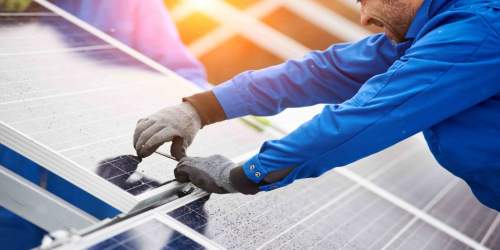Read Time : 1 Minutes
Legal and planning permissions associated with a Solar Panel system.
Solar Panel Legal and planning for England
In England and Wales, the domestic installation of mounted solar panels is likely to be considered ‘permitted development’, meaning that there is no need to apply to the council for planning permission. The following conditions must be met however:
- Solar panels must not be installed above the highest part of the roof (excluding the chimney)
- Panels should protrude no more than 20cm from the surface on which they are installed (roof slope/wall face)
- Panels should be installed, so far as is practicable, to minimise the aesthetic impact upon the building’s exterior
- Panels must not be installed on a property located within the grounds of a listed building
There are important exceptions to the permitted development rule, such as if your property is listed or located in a conservation area. It is advisable to check with your local planning officer if your property falls into these categories.
COMPARE PRICES FROM LOCAL INSTALLERS
Compare prices from local companies fast & free
Enter your postcode to compare quotes from leading professionals. We promise to keep your information Safe & Secure. Privacy Policy
Solar Panel Legal and planning for Scotland
In Scotland the following conditions must be met:
- Panels must not be installed above the highest point of the roof (excluding the chimney)
- If installed on a flat roof, panels must be situated at least 1 meter from the edge of the roof and must not protrude more than 1 meter from the roof’s surface
- If the property is located in a World Heritage Site or conservation area, solar equipment should not be mounted on a roof which forms the front face of the building/the side of building visible from a public road
Solar panels and your insurance provider
Before installing PV technology, it is necessary to contact your home insurance provider in order to ensure that the installation will be covered by your policy (including both theft of and damage to the array). More on this here
Solar Panels and your Mortgage providor.
It is also advisable to discuss your plans to install a PV system with your mortgage provider.





 How Much do Solar Panel Systems Cost in 2024?
How Much do Solar Panel Systems Cost in 2024?








Find a local installer
Welcome to the biggest directory of UK renewable energy companies